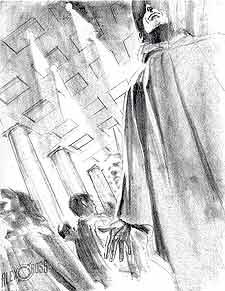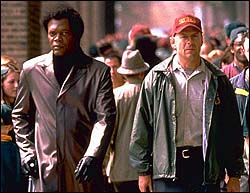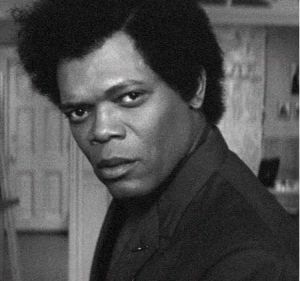Some films, such as ‘The Prestige’ or ‘Field of Dreams’ for example, are like magic tricks. If you look too hard, you could pull them and destroy them, but where’s the fun in that? When this type of house-of-cards film is done right, it is really is magic and can transport you in a way that a hundred ‘Lord of the Star Wars’ would like to. You just have to buy into the world. M. Night Shyamalan is the king of such films. I say, king, but really, after a run of turkeys (The Village, Lady in the Water, The Happening, The Last Airbender) that must be unprecedented from an A-list director, his crown is looking a bit tarnished. However, some of the people who are all up in his ass now are the same people who were proclaiming him a genius after ‘The Sixth Sense’, which just goes to show how hard these films are to make. When it all goes wrong, the sense of smoke-and-mirrors leaves a dissatisfied taste in the mouth.
‘The Sixth Sense’ I like and ‘Signs’ I can take or leave. I personally think you need a bit of religious faith to buy into the ‘Signs’ world. And Mel Gibson’s too quiet and boring in it. I want to see him going crazy. Like in his real life. ‘The Village’ is just…urggh. Pointless and empty.
But Shyamalan is talented and I think he really hit his peak with ‘Unbreakable’, absolutely one of those closed-world films that you have to accept on its own terms. The tone helps immensely with this. It’s a superhero origin-story, about a seemingly ordinary man coming terms with his superhuman powers. Except that it’s written, directed and performed like an Oscar-winning, sombre family drama. David Dunn (Bruce Willis) is more concerned with his passionless, communication breakdown of a marriage and the impact it might have on his son, Joseph (wonderfully performed by Spencer Treat Clark), to think about the fact that he never gets ill or injured, to the point where he is the sole survivor of a train crash.
“Don’t you think that’s kind of weird, not remembering one cold or a fever or a sore throat? What do you think it means?”
David’s gradual realisation of his extraordinary abilities is brought about mainly by his meeting with Elijah Price (Samuel L. Jackson), a man suffering from a horrific condition that causes his bones to fracture very easily. Elijah is fascinated to meet someone who is mirror image of him, the flipside of the coin; someone who can’t be hurt.
“However unreal it may seem, we are connected, you and I. We’re on the same curve, just on opposite ends.”
Eventually, after logic and common sense fail to provide any answers, David starts to embrace the fact that he may well be a ‘superhero’. In one of the best scenes, Elijah explains his theory that comic books are simply as means of passing along these folk tales and urban legends; stories that do in fact have a basis in truth. As things develop, David helps a family trapped by a psychopath and becomes keenly aware of his intuitive sense of wrong-doers and their secrets.
Bruce Willis gives one of his strongest performances as a quiet, decent man struggling with bizarre circumstances (a world away from John McClane) and Samuel L. Jackson is even better as a would-be flamboyant character trapped in a body that won’t let him achieve his full potential. They make a good double act, honed I’m sure on ‘Die Hard with a Vengeance’ and hanging out on the set of ‘Pulp Fiction’.
As I mentioned above, the main meat of the story is a man reconnecting with his family after years of being emotionally distant, because of a ‘sadness’ David can’t shake and which Elijah attributes to him knowing deep down that he is not fulfilling his purpose in life. He knows he doesn’t feel right but it takes his growing friendship with Elijah (a man searching for his own purpose) to find out why and to start to rebuild his family life. This leads to scenes with his son, understandably thrilled to think that his dad is a hero, which are both funny and devastating.
Joseph: Do you think you could beat up Bruce Lee?
David: No.
Joseph: I mean, if you knew karate?
David: Nope.
Joseph: What if he wasn’t allowed to kick, and you were really mad at him?
David: No, Joseph.
Joseph: I thought maybe because you’re my dad… I thought I might be like you… I’m not like you…
David: You are like me. We can both get hurt. I’m just an ordinary man.
Joseph: No, you’re not… Why do you keep saying that?
So there’s plenty of story there to deal with already, but, as so often with M. Night, there’s a sting in the tail.
*****SPOILER *****
All the talk of destiny and the greater purpose of these characters demands a solution and there’s a bobby-dazzler of a twist where we discover Elijah Price is actually a villain, orchestrating disasters (including David’s train crash) all in the hope of finding the survivor who can’t be harmed. Just as Batman needs The Joker and Coke needs Pepsi, the superhero must have the super villain to battle with and define himself (and vice versa). This review began saying this type of film is easy to pick apart and critique. You can rip it to shreds if you feel the need. I prefer to wallow in its thoughtful, serious approach to a daft, fun subject, telling a story that’s ancient in a way that feels new. And to those people who hate/dismiss the twist I would say, why exactly does the Joker live in Gotham City? After all, he knows the Batman lives there.
“Now that we know who you are… I know who I am. I’m not a mistake. It all makes sense. In a comic, you know how you can tell who the arch-villain’s going to be? He’s the exact opposite of the hero, and most time’s they’re friends, like you and me. I should’ve known way back when. You know why, David? Because of the kids. They called me Mr. Glass.”






